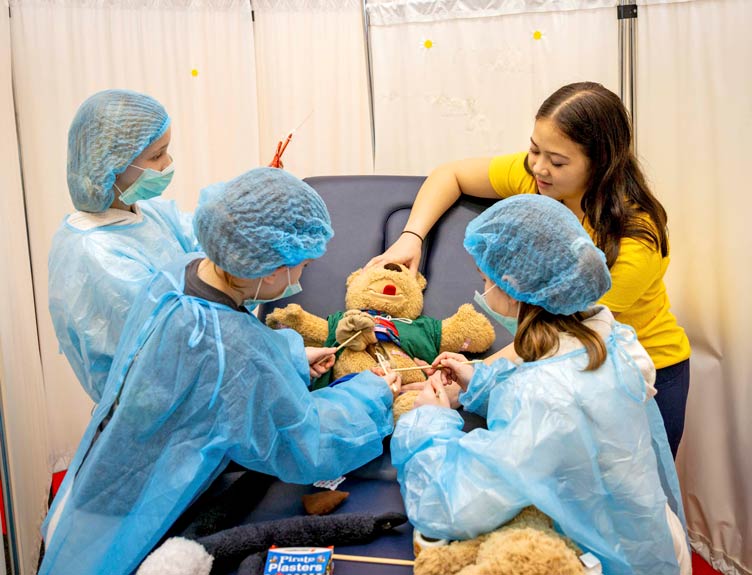New research supports greater patient choice after oesophageal cancer treatments

New research from RCSI has revealed that oesophageal cancer patients with an apparent complete response after chemotherapy and radiotherapy, and who choose not to have surgery, have a similar outcome to patients choosing surgery.
The study, published in the British Journal of Surgery, examined the outcome choice for patients with cancer of the oesophagus and shows that forgoing surgery may be the better option for older patients.
It was inspired by a patient of Professor Thomas Walsh, Emeritus Professor of Surgery at RCSI, who prompted him to involve patients more directly in decision making about surgery after other cancer treatments.
Professor Walsh explained: “The inspiration came from a lovely lady, Eileen, who listened to me patiently when I told her that I would arrange for chemotherapy and radiotherapy, and I would then operate on her. But she said ‘No, you won’t! You will give me chemotherapy and radiotherapy, but you won’t operate. Because my sister had the same tumour, and had a very good response to the treatment, but then they operated, and she died’.
“So, I respected her choice and followed her up very closely. She was 74 then and lived another 17 years before dying of natural causes. I’m glad I listened to her.
“Chemotherapy combined with radiotherapy and surgery has improved survival rates of oesophageal cancer patients, but the surgery is complex and can be risky for patients, who may even die from complications. And quality of life is poorer after surgery”, says Professor Walsh.
“When biopsy samples showed no obvious cancer in the oesophagus, and the CT scan is clear, there might still be microscopic amounts present, or cancer cells may have already spread to other sites in the body. But one third of patients will have no cancer in the oesophagus when it is removed. It's an ethical dilemma.”
Comparable survival rates
Patients in the study were invited to choose: to have surgery to remove the oesophagus (in case there was still cancer present), or to avoid surgery, keep the oesophagus and be closely monitored.
The study showed that while patients in their 50s and 60s were more likely to want surgery to be certain that the disease was gone, older patients, in their early 70s and above, were less likely to choose surgery and its potential side-effects. The patients that chose surveillance had comparable survival rates to patients who chose surgery.
“While we followed up with all patients on this for years after the decision to operate or not, it is still a relatively small group of patients,” Professor Walsh says. “But what it shows is that doctors and surgeons need to listen to the wishes of patients, and the findings of this research can help to inform decisions around surgery or surveillance where appropriate.”
The study, ‘Patient choice of surgery or surveillance following a clinical complete response to neoadjuvant chemoradiotherapy for oesophageal carcinoma’, is available in the British Journal of Surgery.
The RCSI research team that carried out the study in Beaumont and Connolly Hospitals were Professor Thomas Walsh, Natallia Kharytaniuk, Heidi Furlong, Professor Jan Sorensen, Brian O’Neill, Oscar Breathnach and Liam Grogan.



